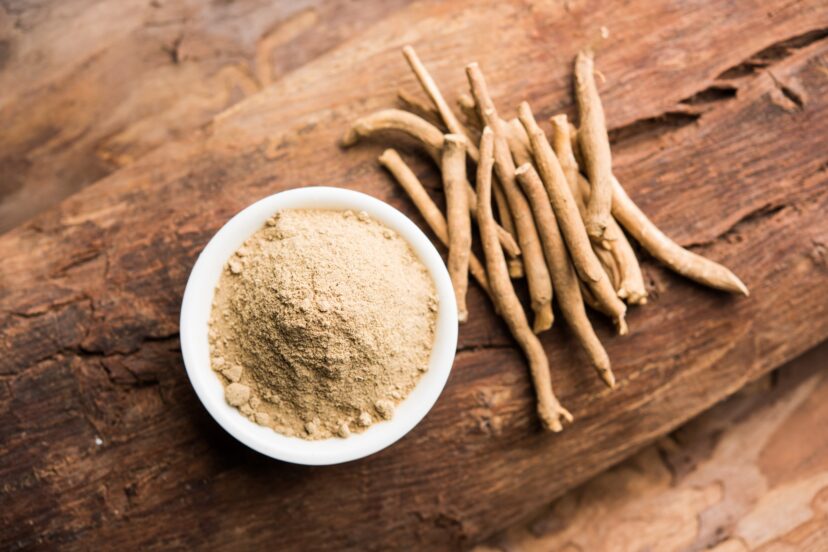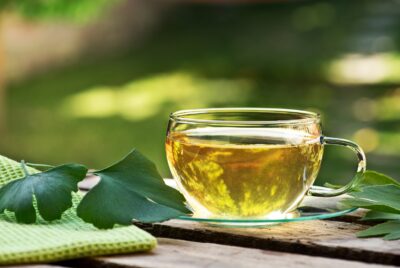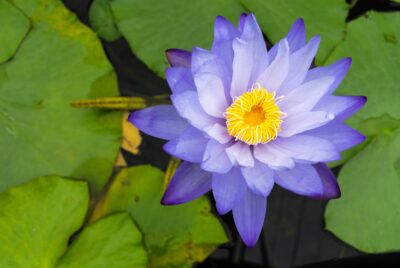Ashwagandha Tea: Health Benefits, Brewing Tips & Creative Uses
Have you ever sipped on a cup of ashwagandha tea? If not, you’re missing out on a world of benefits packed into a single brew. As an enthusiast and advisor on this magical tea, I’m here to take you on a journey through the wonders of ashwagandha tea, explaining its origins, benefits, and how you can make it part of your daily routine.
What is Ashwagandha?

Ashwagandha, also known as Withania somnifera, is a powerful herb used in traditional Ayurvedic medicine. It’s often referred to as “Indian ginseng” for its rejuvenating properties. But what exactly makes this herb so special?
Benefits of Ashwagandha Tea
Drinking ashwagandha tea can bring a multitude of health benefits. Here are some of the key advantages that make it worth adding to your diet.
Stress Reduction
One of the most celebrated benefits of ashwagandha tea is its ability to reduce stress. But how does it work?
How it Works:
Ashwagandha helps lower cortisol levels, the hormone responsible for stress. By keeping cortisol in check, you feel more relaxed and less anxious.
Enhancing Cognitive Function
Need a brain boost? Ashwagandha tea might be just what you need.

Scientific Evidence:
Research shows that ashwagandha can improve memory, attention, and information processing speed. It’s like giving your brain a natural upgrade.
Boosting Immunity
Keeping your immune system strong is crucial, and ashwagandha tea can help with that.
Key Components:
The herb contains withanolides, which are known for their anti-inflammatory and antioxidant properties. These help protect your body from infections and diseases.
How to Make Ashwagandha Tea
Making ashwagandha tea at home is simple and rewarding. Here’s how you can do it.
Ingredients Needed
You’ll need ashwagandha root powder, water, honey (optional), and any other herbs you might like to add for flavor.
Step-by-Step Guide
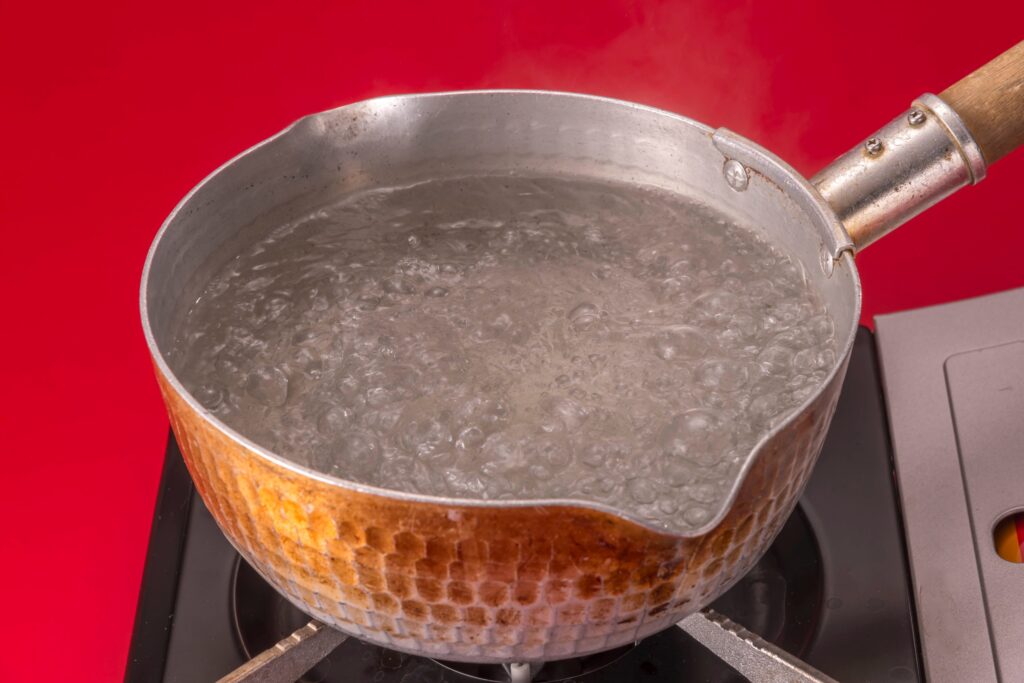
- Boil water in a pot.
- Add a teaspoon of ashwagandha root powder.
- Let it simmer for 10 minutes.
- Strain the tea into a cup.
- Add honey for sweetness, if desired. Enjoy!
Creative Brewing Techniques
These creative brewing techniques allow you to enjoy ashwagandha tea in various forms, making it a versatile addition to your wellness routine. Whether you prefer it hot, cold, or as part of a meal, there’s a way to incorporate ashwagandha that suits your taste and lifestyle.
Cold Brew
For a refreshing summer drink, cold brew your ashwagandha tea. Simply steep the powder in cold water overnight in the fridge, then strain and enjoy.
Ashwagandha Latte
Make a creamy ashwagandha latte by adding steamed milk (dairy or plant-based), along with a touch of vanilla extract.
Ashwagandha Chai
Combine the earthy flavors of ashwagandha with the spicy warmth of traditional Indian chai. Brew ashwagandha powder with black tea and spices like ginger, cardamom, cloves, and cinnamon. Sweeten with honey or jaggery and add milk for a creamy, invigorating drink. This fusion offers both the adaptogenic benefits of ashwagandha and the digestive support of chai spices.
(Jaggery is a coarse dark brown sugar made in India by evaporation of the sap of palm trees.)
Ashwagandha Matcha Blend
For a potent antioxidant boost, mix ashwagandha powder with matcha green tea. This blend combines the calming properties of ashwagandha with the energy-enhancing effects of matcha. Whisk together with hot water until frothy, and enjoy the smooth, vibrant green tea with an added layer of wellness.
Ashwagandha Iced Tea
Perfect for warm weather, prepare a refreshing iced version of ashwagandha tea. Brew a strong batch of ashwagandha tea, then let it cool to room temperature. Pour over ice and add a splash of lemon juice and honey. You can also infuse it with mint leaves or slices of cucumber for a cooling twist.
Herbal Ashwagandha Tea Blend
Combine ashwagandha with other herbs to create a custom blend tailored to your needs. For relaxation, mix with chamomile and lavender. For an immune boost, add echinacea or elderberry. Steep the herbs together, strain, and enjoy a tea that offers multiple health benefits in one cup.
Ashwagandha Golden Milk Tea
Golden milk is a popular wellness drink that typically combines turmeric with milk and spices. Add ashwagandha powder to your golden milk for an added adaptogenic benefit. Simmer turmeric, ashwagandha, black pepper, and ginger in your choice of milk, then sweeten with honey or maple syrup. This rich, golden-hued tea is perfect for a cozy evening ritual.
Ashwagandha Citrus Tea
Brighten the earthy flavor of ashwagandha by brewing it with citrus fruits like lemon, lime, or orange. Steep ashwagandha powder in hot water, then add freshly squeezed citrus juice and a bit of zest. Sweeten with honey for a vibrant and refreshing tea that’s packed with vitamin C and antioxidants.
Ashwagandha Tea with Coconut Water
For a tropical twist, brew ashwagandha tea and mix it with chilled coconut water. This combination is hydrating and adds a light sweetness that complements the earthy tones of ashwagandha. It’s a perfect drink for post-workout recovery, offering both rehydration and stress relief.
Smoothie Base
Use brewed ashwagandha tea as a base for your morning smoothie. Blend it with fruits like bananas, berries, or mango, and add a handful of spinach or kale for a nutrient-packed start to your day. The ashwagandha adds a subtle earthy flavor while providing adaptogenic support.
Ashwagandha Tea vs. Blue Lotus Tea: A Comparison
1. Origins and Traditional Use
- Ashwagandha Tea: Derived from the roots of the Withania somnifera plant, ashwagandha tea has been a staple in Ayurvedic medicine for over 3,000 years. Traditionally used for its adaptogenic properties, it helps reduce stress, boost cognitive function, and improve physical endurance.
- Blue Lotus Tea: Made from the petals of the Nymphaea caerulea (Blue Lotus) plant, this tea has roots in ancient Egyptian culture. It was historically used for its mildly sedative and euphoric effects, often as a spiritual aid or in religious ceremonies.
2. Benefits
- Ashwagandha Tea: Known for its ability to reduce cortisol levels, ashwagandha tea is a natural adaptogen that supports stress reduction, enhances immunity, and boosts cognitive function. It’s also valued for improving sleep and reducing anxiety.
- Blue Lotus Tea: Blue lotus tea is primarily used for its calming and sedative properties. It induces a mild sense of euphoria, enhances relaxation, and can help with anxiety. Some claim it supports better sleep and may have mild aphrodisiac effects.
3. Flavor Profile
- Ashwagandha Tea: Has a somewhat earthy, bitter taste. It’s often sweetened with honey or paired with spices like cinnamon to improve flavor.
- Blue Lotus Tea: Offers a floral, slightly sweet taste, making it more naturally palatable than ashwagandha.
4. Usage in Wellness
- Ashwagandha Tea: Ideal for those looking to reduce stress, boost mental clarity, and enhance physical resilience. It’s often consumed for long-term health benefits.
- Blue Lotus Tea: Best suited for relaxation and mild euphoria. It is typically enjoyed as a way to unwind or enhance meditation practices.
5. Safety and Side Effects
- Ashwagandha Tea: Generally safe, though it may interact with medications related to thyroid, blood pressure, or diabetes. Pregnant women should avoid it without consulting a doctor.
- Blue Lotus Tea: Blue lotus has a low risk of side effects, but in high doses, it can cause dizziness or mild sedation. It’s best avoided during pregnancy due to limited research on its effects.
Both teas offer unique benefits, with ashwagandha tea focusing on adaptogenic support and stress relief, while blue lotus tea excels in promoting relaxation and a mild sense of calm.
Ashwagandha Tea vs. Other Herbal Teas: A Quick Comparison
1. Stress Relief
- Ashwagandha Tea: Known for its adaptogenic properties, it helps the body manage stress by lowering cortisol levels. It’s a go-to for reducing anxiety and improving resilience under stress.
- Chamomile Tea: Another popular choice for stress relief, chamomile is well-known for its calming effects and ability to promote relaxation and sleep. It’s a milder option compared to ashwagandha.
2. Cognitive Enhancement
- Ashwagandha Tea: Ashwagandha improves cognitive function, memory, and focus, making it a useful tea for mental clarity.
- Ginkgo Biloba Tea: Like ashwagandha, Ginkgo biloba is often consumed for its brain-boosting benefits. It enhances circulation, which supports better memory and mental performance.
3. Immune Support
- Ashwagandha Tea: Boosts immunity by enhancing the body’s defense mechanisms, thanks to its antioxidant and anti-inflammatory properties.
- Echinacea Tea: A widely used herbal tea for immune support, echinacea helps reduce the duration and severity of colds and flu. It is often consumed during illness.
4. Sleep Aid
- Ashwagandha Tea: Promotes restful sleep by calming the nervous system and reducing stress.
- Valerian Root Tea: Valerian is commonly used for insomnia and sleep issues, known for its strong sedative effects compared to the milder calming effect of ashwagandha.
5. Taste
- Ashwagandha Tea: Earthy and slightly bitter, often requiring sweeteners or spices like cinnamon to improve flavor.
- Peppermint Tea: Has a naturally refreshing, minty flavor, making it more enjoyable for those who prefer a light, fresh taste.
Overall, ashwagandha tea stands out for its adaptogenic benefits, while other herbal teas offer specific advantages like improved digestion (peppermint), immune support (echinacea), or stronger sedative effects (valerian). Each herbal tea has its own unique properties tailored to different wellness needs.
Historical Background
Ashwagandha has a rich history that dates back thousands of years, deeply rooted in traditional Ayurvedic medicine. Here are some key points about its historical background:
Ancient Origins
- Ayurveda: Ashwagandha has been a cornerstone of Ayurvedic medicine for over 3,000 years. Ayurveda, which translates to “the science of life,” is one of the world’s oldest holistic healing systems, developed in India. Ashwagandha was revered for its rejuvenating and adaptogenic properties, believed to enhance vitality and longevity.
- Etymology: The name “Ashwagandha” comes from the Sanskrit words “ashva,” meaning horse, and “gandha,” meaning smell. The herb is named this way because its roots are said to have the smell of a horse and it is believed to impart the strength and vitality of a horse.
Traditional Uses
- Rejuvenative Herb: Historically, ashwagandha was used as a Rasayana, a rejuvenative herb believed to promote physical and mental health, slow the aging process, and increase longevity. It was commonly used to enhance energy levels, improve cognitive function, and reduce stress.
- Medicinal Applications: Ancient Ayurvedic texts detail various uses of ashwagandha, including treatments for arthritis, anxiety, insomnia, and respiratory disorders. Its adaptogenic properties made it a versatile remedy for balancing the body’s stress response.
Cultural Significance
- Mythological References: In Indian mythology, ashwagandha is often associated with strength and vitality, similar to other revered plants and herbs. Its use in various rituals and traditional practices underscores its cultural importance.
- Spread to Other Cultures: While ashwagandha originated in India, its benefits have led to its adoption in other traditional medicine systems, including Unani and traditional African medicine. This spread signifies its recognized effectiveness and historical value across different cultures.
Modern Research and Revival
- Scientific Studies: Modern research has validated many of the traditional uses of ashwagandha. Studies have confirmed its benefits in stress reduction, cognitive enhancement, and immune support, which has led to a resurgence in its popularity globally.
- Contemporary Use: Today, ashwagandha is widely available in various forms, including tea, capsules, powders, and extracts. Its integration into contemporary wellness practices is a testament to its enduring value as a natural remedy.
Ashwagandha’s journey from ancient Ayurvedic texts to modern-day health practices illustrates its timeless appeal and effectiveness. Its rich historical background continues to be celebrated as more people discover the benefits of this remarkable herb.
When to Drink Ashwagandha Tea
Timing your tea consumption can maximize its benefits.
Best Times for Maximum Benefits
The best times to drink ashwagandha tea are in the morning for an energy boost or before bedtime to help you relax and sleep better.
Unique Tips and Hints for Ashwagandha Tea
Getting the most out of your ashwagandha tea involves more than just brewing it. Here are some unique tips and tricks to enhance your experience and maximize the benefits.
Enhancing Flavor
- Spice it Up: Add a pinch of cinnamon, cardamom, or nutmeg to your tea for a warming, spicy kick.
- Citrus Zing: A squeeze of fresh lemon or orange juice can add a refreshing twist and extra vitamin C.
- Sweeten Naturally: Use natural sweeteners like honey, agave syrup, or maple syrup instead of sugar for a healthier option.
Combining with Other Herbs
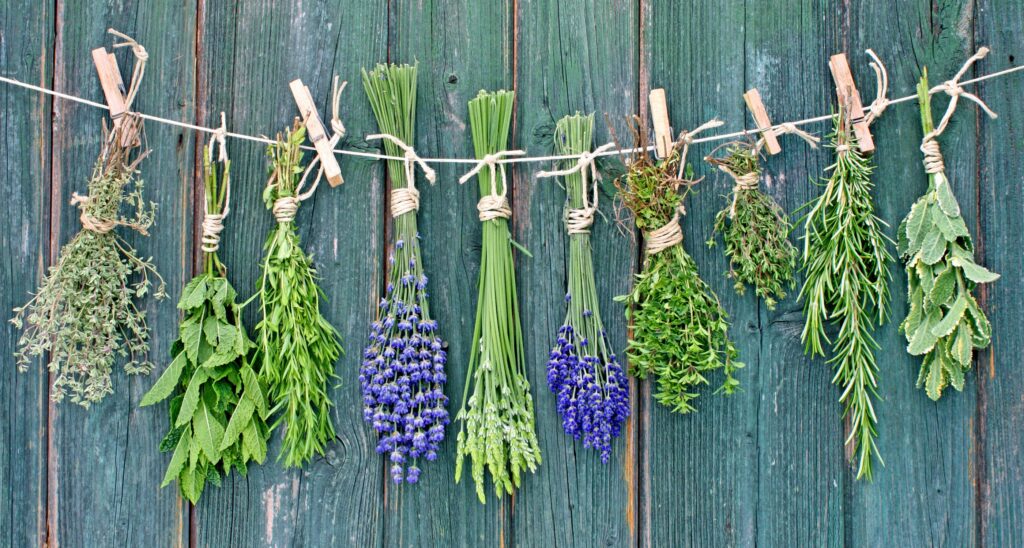
- Calming Blend: Mix ashwagandha with chamomile or lavender to create a calming nighttime brew.
- Energizing Mix: Pair with ginger or peppermint for an invigorating morning tea that boosts energy and digestion.
- Detox Duo: Combine with turmeric and a dash of black pepper for a detoxifying and anti-inflammatory drink.
Incorporating Ashwagandha into Recipes
- Smoothies: Add a teaspoon of ashwagandha powder to your morning smoothie for an extra health boost.
- Baked Goods: Incorporate ashwagandha powder into your favorite baking recipes, like cookies or muffins, for a subtle health boost.
- Soups and Stews: Add a small amount of ashwagandha powder to soups and stews for an earthy flavor and added health benefits.
- Popsicles: Turn your ashwagandha tea into a fun and cooling treat by making popsicles. Brew a strong batch of ashwagandha tea, sweeten it with honey or agave, and pour it into popsicle molds. Add slices of fruit or herbs like mint for extra flavor. Freeze until solid and enjoy as a healthy, refreshing snack.
- Ashwagandha Tea-Infused Oatmeal: For a warm and comforting breakfast, brew a small amount of ashwagandha tea and use it to cook your oats. The tea infuses the oatmeal with its benefits while adding a subtle, earthy flavor. Top with nuts, seeds, and a drizzle of honey for a nourishing start to your day.
Storing Your Ashwagandha Tea
- Keep it Fresh: Store ashwagandha powder in an airtight container in a cool, dark place to maintain its potency.
- Batch Brewing: Make a large batch of tea and store it in the fridge for up to a week. This way, you have a ready supply of tea whenever you need it.
- Herb Blends: Create your own custom herb blends with ashwagandha and other favorite herbs, and store them in labeled jars for easy use.
Using Ashwagandha Tea for Skin and Hair
- Facial Toner: Brew a cup of strong ashwagandha tea, let it cool, and use it as a facial toner to soothe and nourish your skin.
- Hair Rinse: Use ashwagandha tea as a final hair rinse to strengthen and add shine to your hair.
- Bath Soak: Add a cup of brewed ashwagandha tea to your bathwater for a relaxing and skin-nourishing soak.
Combating Stress on the Go

- Tea Bags: Keep pre-made ashwagandha tea bags in your bag for a quick stress-relieving brew when you’re on the go.
- Travel Thermos: Carry a thermos of ashwagandha tea with you to sip throughout the day, especially during stressful situations.
- Instant Powder Mix: Mix ashwagandha powder with your favorite instant tea or coffee for a quick and easy stress-busting drink.
Potential Side Effects
While ashwagandha tea is generally safe, it’s important to be aware of potential side effects.
Who Should Avoid It
Pregnant or breastfeeding women, and people with autoimmune diseases should avoid ashwagandha without consulting a doctor.
Possible Interactions
Ashwagandha can interact with medications for thyroid, diabetes, and blood pressure, so check with your healthcare provider if you’re on these medications.
Where to Buy Quality Ashwagandha Tea
To reap the full benefits of ashwagandha tea, make sure you’re buying quality products.
You can find it both online and in health stores. Online shopping offers more variety.
Final Thoughts
Ashwagandha tea is more than just a soothing beverage; it’s a gateway to enhanced well-being, drawing from centuries of Ayurvedic wisdom. From reducing stress and boosting cognitive function to supporting immunity and sleep, this powerful adaptogen offers a natural solution to modern-day challenges. By incorporating ashwagandha tea into your daily routine, you can enjoy its numerous health benefits while exploring various creative brewing techniques to suit your taste. Whether you’re seeking relaxation, energy, or a boost to your overall health, ashwagandha tea is a versatile and valuable addition to your wellness journey.
FAQs
What does Ashwagandha tea taste like?
Ashwagandha tea has a slightly earthy, bitter taste. Adding honey or spices can enhance its flavor.
Can I drink Ashwagandha tea every day?
Yes, you can drink ashwagandha tea daily, but it’s always best to consult with a healthcare provider, especially if you have underlying health conditions.
Is Ashwagandha tea safe during pregnancy?
Pregnant women should avoid ashwagandha tea unless advised otherwise by their doctor, as it can stimulate the uterus.
How long does it take to see benefits?
Some people notice benefits within a few days, while for others, it might take a few weeks of regular consumption.
Can I grow Ashwagandha at home?
Yes, you can grow ashwagandha at home if you live in a warm climate. It requires well-drained soil and plenty of sunlight.

